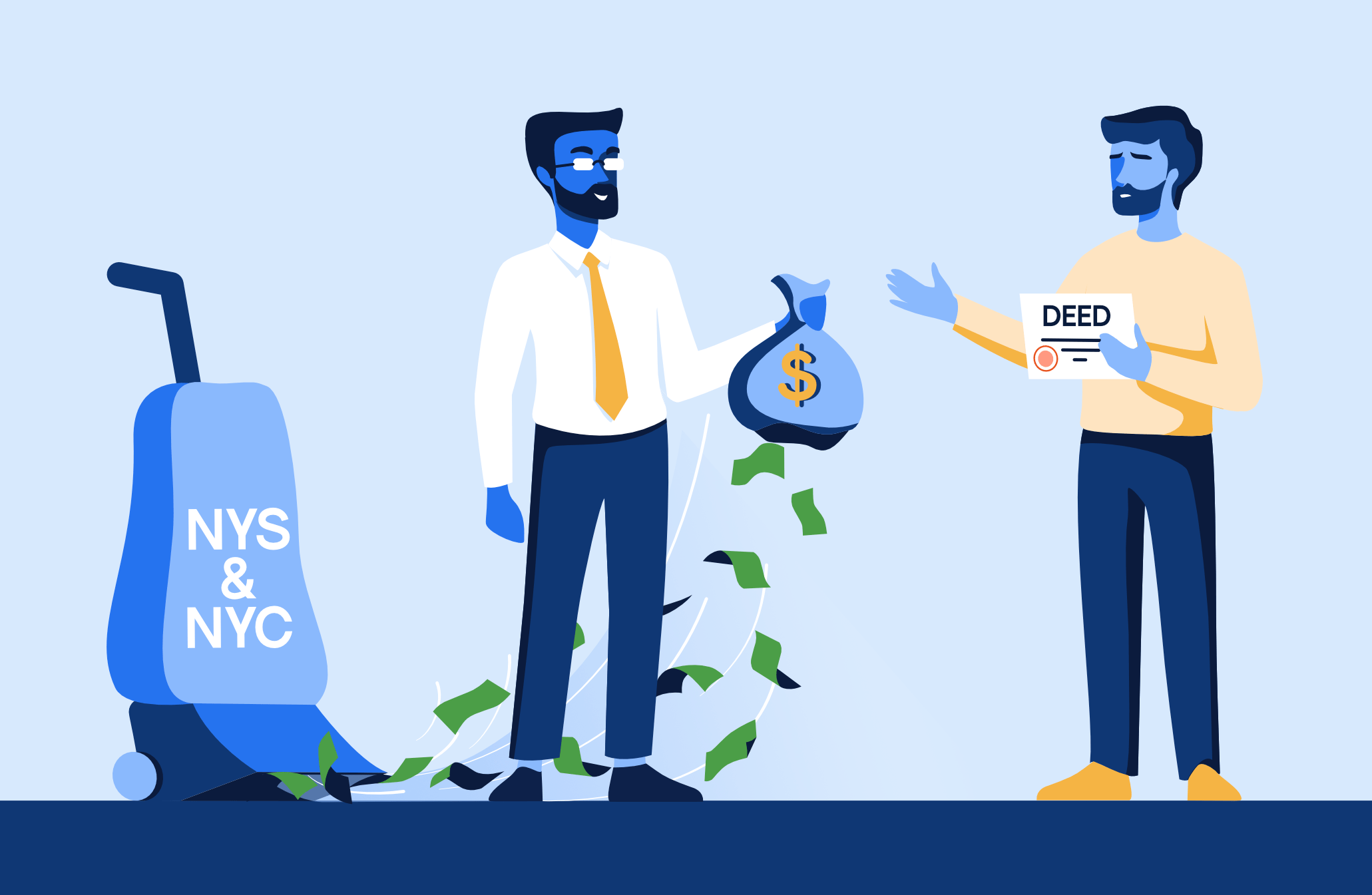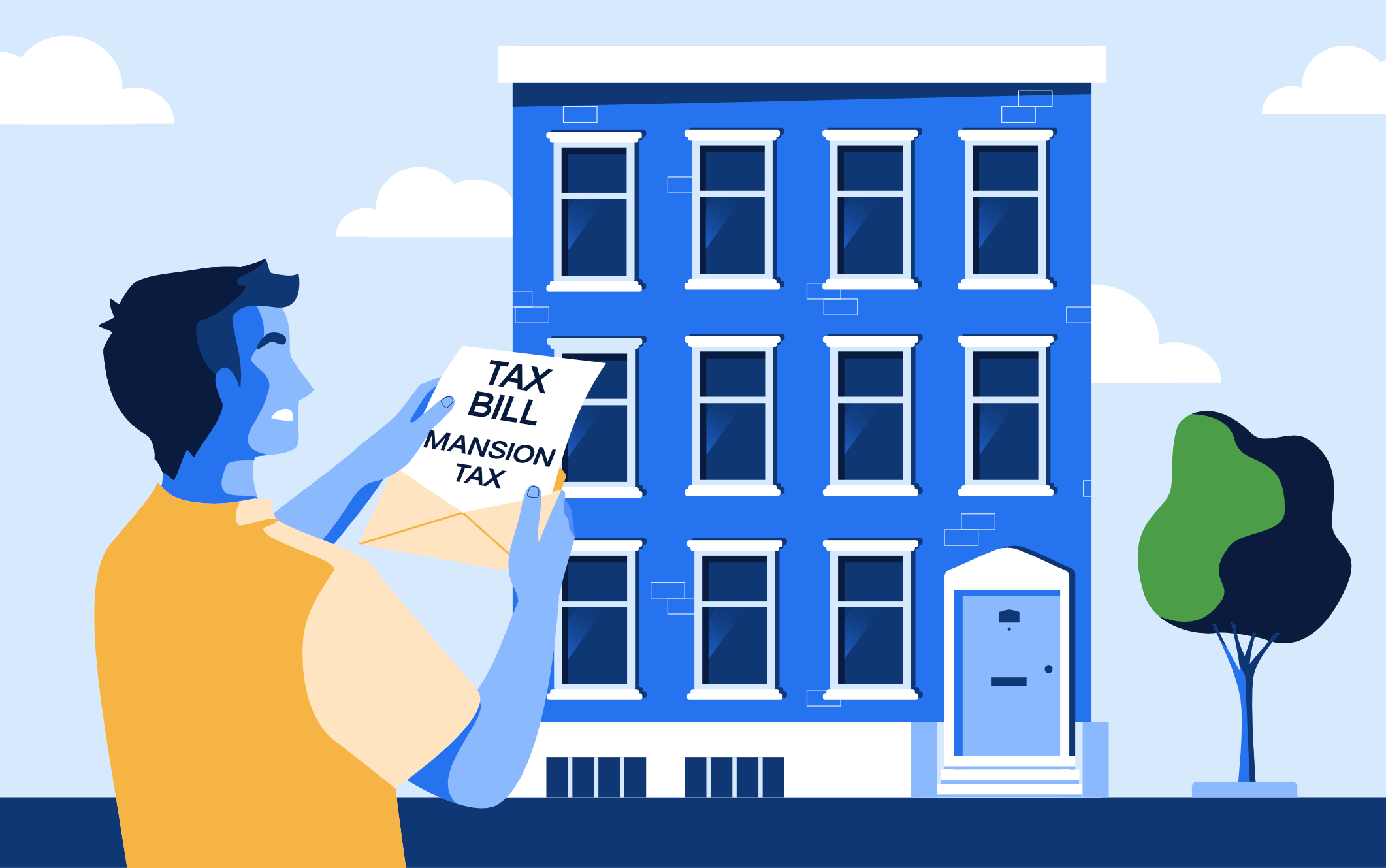After a little bit of homework, most buyers and sellers learn the basic taxes associated with buying, owning and selling real estate in New York City. There’s the mansion tax, transfer taxes, mortgage recording tax and property taxes. The one “tax” that is often a surprise is the flip tax. All buyers, especially co-op buyers, need to know about flip taxes as they can severely alter the economics of buying apartments in NYC.
Table of Contents:
What Is A Flip Tax in NYC?
How Much Is The Average Flip Tax?
How Is A Flip Tax Calculated?
Who Pays A Flip Tax In NYC?
Why Do Flip Taxes Exist?
Are Flip Taxes Good Or Bad For Property Values?
Where Are Flip Taxes Disclosed?
Can a Flip Tax Be Good?
What Is A Flip Tax in NYC?
A flip tax is a transfer fee paid by the seller to the building. While significantly more common in co-ops, there are many condos in NYC that also have them.
Despite the name, a flip tax is not actually a tax as 100% of it goes to the building, not the government.
The term “flip tax” dates back to the 1980s when rental buildings were being converted to co-ops. As previous rental buildings, they didn’t have much of a reserve fund. One way these new co-ops looked to build such a fund was with a flip tax.
Original owners of these co-op units got a very good price and, if they chose to, could “flip” their apartment and make a nice profit. Imposing a tax on that “flip” was a way for the co-op to raise money for the building’s reserve fund and make necessary capital improvements without assessing shareholders.
Since that time, existing co-ops have adopted flip taxes simply as a way to generate revenue.
How Much Is The Average Flip Tax?
Based on Yoreevo's random sample of Manhattan co-ops, by far the most common flip tax is 2% of the sales price. Almost half of all co-ops sampled had a 2% flip tax. We also found the vast majority - about 90% - have some kind of flip tax.
Anecdotally, we'd say that's high as the data sampled is provided on a somewhat voluntary basis but 2% is certainly the most common flip tax rate and the majority of co-ops have them.
That 2% is significant and will likely absorb a noticeable portion of your capital gain.
For example, say you buy an apartment for $1,000,000 in a building with a 2% flip tax. You hold it for five years and sell it for $1,200,000 so you owe $24,000 for the flip tax. $24,000 is a lot of money but compared to a gain of $200,000, you might not get too worked up. But don’t forget you paid $10,000 for the mansion tax when you bought, $22,000 for the transfer tax during the sale and possibly a mortgage recording tax as well.
It’s easy to see how that seemingly small 2% flip tax gets big quickly. In this scenario, it was 15% of your capital gain. Don’t get us started if you backed out a standard 5-6% broker commission!
How Is A Flip Tax Calculated?
In Yoreevo’s sample, over 80% of flip taxes were calculated as a percentage of the sale price.
Other ways included -
- A percent of the owner’s capital gain
- A fixed dollar amount per share
- An amount that declines the longer you hold the apartment
Every building comes up with their own flip tax and can structure it however they like. If a building wanted to make the tax depend on what day of the week the apartment is sold, they could. As long as it is in the building’s original offering plan or has been approved by the building’s owners, the tax is legitimate.
Who Pays A Flip Tax In NYC?
Unless otherwise negotiated, the seller is expected to pay the flip tax.
Who pays shouldn’t really matter. If the seller asks the buyer to pay the 2% flip tax, they’ll simply lower their offer by 2% to compensate.
There is no way to avoid paying a flip tax. Just like all the other closing costs, it must be paid for the sale to go through.

Why Do Flip Taxes Exist?
We’re long past the wave of co-op conversions so why do flip taxes still exist today? Yoreevo can point to two reasons.
Discourage Flipping - While most original co-op owners have sold by this point, you can still flip an apartment and a flip tax discourages short term ownership periods. These taxes are just one of the many reasons short-term apartment ownership in NYC doesn’t make sense.
Source of Revenue - More practically though, buildings have no reason to stop charging a flip tax. It’s a source of revenue that is baked into the building’s budget. If a vote to repeal the tax was proposed, obviously those looking to sell in the near term would support it and everyone else would oppose it. The latter is a much larger group so for both theoretical and practical reasons, flip taxes are here to stay.
Are Flip Taxes Good Or Bad For Property Values?
Recently, Yoreevo represented a buyer in a building that was proposing a flip tax. Current owners would be grandfathered in so only buyers purchasing after a certain date would pay it when they sold. In the letter introducing the vote to shareholders was -
“CURRENT OWNERS WILL NEVER BE SUBJECT TO THE ‘FLIP TAX’”
All caps was their emphasis. Clearly, the person who wrote this letter wanted shareholders to vote for the flip tax. While technically true - current owners would not pay it - the letter did not address the potential impact on their property values.
If a buyer knows they are going to pay 1% when they sell, all else equal, they are going to pay 1% less for the apartment so in Yoreevo’s opinion, even this tax affected current shareholders.
In theory, a flip tax should not affect property values because the maintenance will be commensurately lower but in reality, they hurt property values simply because they’re annoying. Buyers don’t want to hear they’ll have to pay the building for the right to sell.
Where Are Flip Taxes Disclosed?
Right behind the sublet policy, “Does the building have a flip tax?” is the most common co-op question Yoreevo receives.
With so many dollars at stake, it’s surprising the tax does not need to be advertised. Disclosure on the broker portal has become more common but it’s still only found on a minority of listings so unfortunately, manually asking the listing agent is the only consistent way to find out.
Can A Flip Tax Be Good?
While most taxes are bad, that’s not necessarily the case here. Remember a flip tax gets paid to the building so it essentially subsidize everyone's maintenance.
While each building’s situation will be different depending upon the amount of the tax, the number of apartment sales per year and other factors, it might be helpful to go through an example.
Assume a building has 100 units and every year, sales in the building generate a total flip tax of $100,000. That means each owner avoids paying $1,000 of maintenance per year. Of course, when you sell, a lot of that gets wiped out but the longer you stay, the more a flip tax goes in your favor.
Flip taxes started out as a practical source of revenue for buildings that desperately needed it. They have since morphed into just another source of revenue for buildings that would otherwise find it. Regardless of their merits, they are thoroughly integrated into NYC real estate and all buyers should be aware of their potential financial impact.
Disclaimer: This post should is meant for informational purposes only and should not be relied upon for financial guidance. Please contact a qualified accountant and/or attorney if you have any questions about your particular situation.


